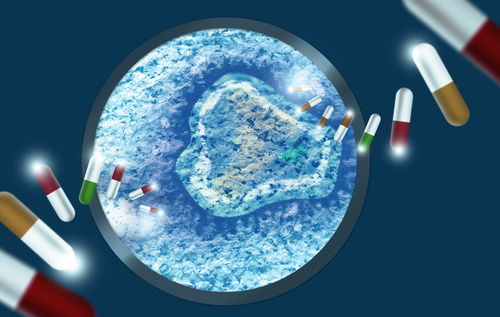Toxicology and Pharmaceutical Industry Advanced Training (PIAT)
Posted: 19 August 2010 |
Toxicology is the study of the harmful interactions between chemicals and biological systems. Man, as well as other animals and plants, is increasingly exposed to a huge variety of chemicals. These range from metals to large complex organic molecules, all of which are potentially toxic. A toxicologist must understand pathology, biochemistry, chemistry and physiology as these disciplines all contribute to the impact of a given chemical’s toxicity. Indeed the multidisciplinary nature of toxicology makes the area of toxicology a challenging yet rewarding area for research and learning. To gain a true understanding of how a chemical can disrupt a biological system and cause toxic consequences is no easy matter.


Toxicology is the study of the harmful interactions between chemicals and biological systems. Man, as well as other animals and plants, is increasingly exposed to a huge variety of chemicals. These range from metals to large complex organic molecules, all of which are potentially toxic. A toxicologist must understand pathology, biochemistry, chemistry and physiology as these disciplines all contribute to the impact of a given chemical’s toxicity. Indeed the multidisciplinary nature of toxicology makes the area of toxicology a challenging yet rewarding area for research and learning. To gain a true understanding of how a chemical can disrupt a biological system and cause toxic consequences is no easy matter.
The awareness of the problem of exposure of humans to potentially toxic chemicals in our environment has grown substantially in recent years. Toxicology has also taken on additional dimensions encompassing legal, social and moral issues. Hazard and risk assessments and value judgements have become extremely important and here the toxicologist has a key role to play in modern society. The exciting advances in how this is best achieved provide a stimulating scientific area of debate which attracts input from a variety of experts. While toxicology cannot be regarded as a new subject, it certainly continues to grow and mature over time.
Historically, toxicology is the study of poisons. Nowadays, we regard the area as involving substantially more than the use of poisons for nefarious purposes and the production of antidotes to include the enormous and ever increasing number of manmade chemicals. There is rigorous study of chemicals by the industries that manufacture them and legislation to control their use involving government regulatory agencies. Unfortunately, disasters both at industrial and individual levels have driven much of this effort. We are acutely aware that there are no safe chemicals, only safe ways to use them.
Toxic substances fall into several classes based on the way in which humans may be exposed to them and include drugs, particularly legally administered medicines, food additives, agrochemicals, industrial chemicals and environmental pollutants. The former is the main focus of the PIAT course; however drugs should not be treated in complete isolation from the other types of chemicals. Drugs vary hugely in their chemical structure and posses a wide variety of biological activities. As they are foreign substances, albeit designed to achieve a particular biological response, their intentional ingestion by humans makes them a unique class of potential toxin. The thalidomide disaster in the 1960’s was responsible for the continually increasing vigilance now applied to all new chemical entities that are developed in the hope of combating diseases and elevating unmet therapeutic needs. Its importance has not been limited to developments in teratogenic (abnormalities in foetal development) testing but extends to all types of toxicities.
Drug toxicities are often divided into four basic mechanisms:
1. direct and predictable effects due to altered drug elimination and also those occurring after overdosing
2. toxic effects occurring after repeated dosing with a biochemical or immunological agent
3. direct but unpredictable toxic effect after a single therapeutic dose due to an idiosyncratic response
4. toxic effects due to another drug or substance interfering with the elimination or pharmacological response of the drug in question (drug-drug interaction)
Given the toxicological issues associated with modern drug therapy, its success is remarkable and only as a result of laborious research efforts. One has to bear in mind Voltaire, “Doctors put drugs of which they know little into our bodies of which they know less, to cure diseases of which they know nothing at all.” While we have advanced enormously since those days, we still have major deficiencies in our knowledge, which modern Pharma are perpetually required to overcome.
PIAT programmes are specifically designed to increase the knowledge and understanding of staff in the industry and our toxicology programme has the same aim. This recently established programme has been set up predominantly for the pharmaceutical industry, but is also equally applicable to allied industries and government agencies, as a result of a perceived need for increasing numbers of highly trained staff. Career development and progression for staff in the industry and ancillary organisations is as important for employers as employees. PIAT programmes are unique in their distance learning format, and have contributed to industry success for nearly 20 years.
History and delivery
The original PIAT programme was proposed in 1989 in collaboration with the UK Pharma – ceutical Industry. Modules were written by experts based in major Pharma from the UK, US, Japan, Switzerland, Thailand and academia. A programme of eight modules on Toxicology has now been written.
The modules have EU and US relevance, and are applicable worldwide due to the overriding importance of FDA and EMEA regulations. The aims of the programme were to have a flexible structure of freestanding modules. These have an open and distance learning style, allowing minimum absence time from the workplace, which benefits both employer and student. Rigorous quality assurance is carried out by the University of Manchester. All module tutors are accredited University staff, and results are moderated by an accredited external examiner. There are a range of entry options; a minimum of an HND is usually required for a Diploma, and a degree level scientific qualification is usually needed for an MSc and most students are science graduates. No prior learning is required for individual modules, but four credited modules with a pass mark of 50 per cent equate to BSc degree equivalence. Recently, we enrolled students with MBAs and law degrees!
Individual course modules have a workload of 150 hours per module, and the course content consists of a workbook of 150-300 pages, written assignments and a workshop (tutorial) of two to four hours with the module tutor. There is a two hour written examination required for most modules. Other benefits include fulltime contact with a tutor, available via e-mail, and continual updates of modules on an annual basis.
Toxicology
The Toxicology Programme was set up to address a severe shortage of toxicologists in the industry. The Toxicology Programme consists of nine modules which are shown in Box 1.
| BOX 1. |
| 1. Principles of Toxicology |
| 2. Assessment of Toxicity |
| 3. Biotransformation and Kinetics |
| 4. Regulatory Toxicology |
| 5. Target Organ Toxicology (1) |
| 6. Target Organ Toxicology (2) |
| 7. Mechanisms of Toxicity |
| 8. Molecular and Cellular Methods in Toxicology |
| 9. Integration and Risk Assessment |
University accreditation of individual modules has taken place alongside their completion, and accreditation of the complete programme is on track for late 2010. Student uptake to date is 35 modules (by 18 students), and there is demand for others when completed. Extended promotion of the programme includes visits to major Pharma, and further presentations at learned conferences, in addition to our exhibitions at BPC 2008 and 2009, and EUFEPS 2009, and e-Newsletter shots to all known HR managers and former students.
University awards include module credits, 15 per module, a Diploma for 8×15 credits, and an MSc is gained after the diploma, plus dissertation of 60 credits, making a total of 180 credits. Available university awards are shown in Table 1.
Table 1. Credit Rating of Available University Awards
| Module credit | Certificate | Diploma | MSc |
| 15 | 60 | 120 | 120 + 60 credit dissertation |
The degree awarded for this is an Industrial Pharmaceutical Sciences MSc. Distinctions are awarded for marks of ≥ 70 per cent in all the modules and the dissertation, and 12 have been awarded over the last four years.
To date there have been over 200 MSc’s, and 3000 individual modules gained in the PIAT programmes. Students have come from a wide range of employers including major Pharma, biotech companies and the NHS, and have been mainly staff from production and R & D. Worldwide take-up of the programmes includes South America, North America, the Far East and Europe.
Financial benefits accrue to both students and employers in terms of time and money spent; the student does not need to leave the workplace and the employer keeps and retains staff during the programme. Other benefits include improved work performance and career development. One extreme example is that of one student who developed to become a module author. These new modules are believed to be ideal for continual professional development (CPD), which is increasingly important to both employers and employees in the pharmaceutical industry. We currently have a range of one to three credit units in preparation, specifically designed for CPD.
www.pharmacy.manchester.ac.uk/ postgraduate/piat





